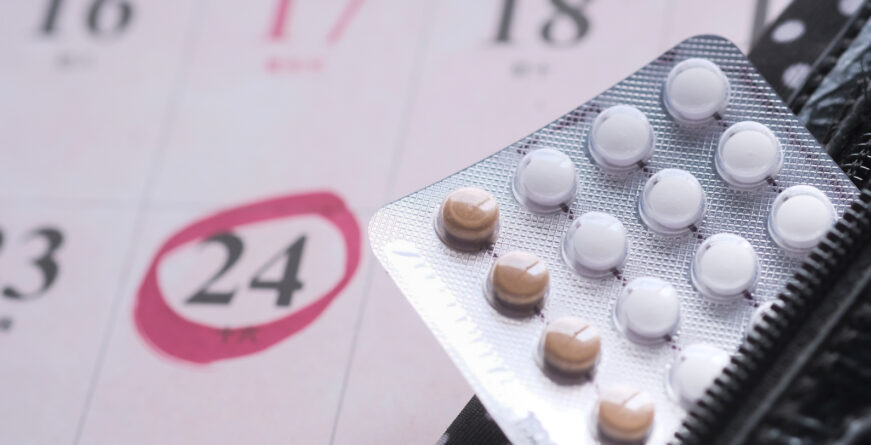In 1961, the FDA approved the use of female oral contraceptive pills (commonly known as birth control pills) and the world has never been the same. Currently there are well over 60 different birth control pills on the market and an estimated 12 million women in the United States using birth control pills. For most women, birth control pills work very well. They are inexpensive, efficient, effective and take so much of the fear of unwanted pregnancy out of the equation. However, there is a group of women who really don’t do well on oral birth control and often the side effects are overlooked, or women don’t even realize that the side effect that they are experiencing are from their birth control!
What side effects? It’s clear now that hormonal birth control pills can create low desire, decreased arousal, dryness, and even pain. I have had so many patients tell me they wondered if their birth control pills could be contributing to their sexual problems, but they figured that since they were never told about these potential side effects by their prescribing practitioner then it must be all in their head. And they are angry about that. And who can blame them? “Why wouldn’t my doctor tell me?” or “I would have stopped the pill years ago when this first started if I had known that this could be a problem,” they will say. Sometimes the problem has been going on for years and they are just realizing the causes now.
So, ironic as it may seem, the little pills you started because you were having sex, are now what could be the reason you don’t want sex anymore. Birth control pills suppress hormones in your body to prevent you from ovulating and preventing pregnancy. But they also suppress your natural production of androgens, specifically testosterone. They also increase production of SHBG (sex hormone binding globulin), a protein which will bind to testosterone and make it unavailable for your body to use. Testosterone is the hormone most closely linked to driving a woman’s libido. The birth control pills reduce your testosterone levels significantly. (This is also why birth control pills will help clear your skin).
Women are starting birth control pills at younger ages, and it is not uncommon for women to be on birth control pills for 10–15 years. While it is perfectly safe for women to stay on birth control pills for many years, it is unclear what kind of effect this long-term use has on a woman’s libido. Some research has shown that even after discontinuing use of birth control pills, women still have not regained their libido.
If you’ve been looking for a non-hormonal birth control, there are a few options you can consider:
· Condoms and diaphragms (yes, they are still making diaphragms although they can be hard to track down.) are good straight-forward options.
· Some IUDs are completely hormone free. And even the ones that do have hormones, only have “local” hormones, that should not affect you systemically.
· As of September 2020, the FDA-approved a vaginal gel contraceptive (Phexxi) which is significantly more effective than spermicides. It is a cream that is made of lactic acid (which is naturally produced in the vagina and is found in dairy products like yogurt and kefir) and potassium bitartrate (used in cooking as cream of tartar) It’s inserted into the vagina (with an applicator) an hour before intercourse. It keeps the vaginal pH levels steady and moderately acidic, which effectively kills any viable sperm. .
So, here are the most important take-aways:
· Birth control pills work for many women with no side effects.
· If you are having symptoms of low desire, problems with arousal or pain in your vulva/vagina and it seems to correspond with starting to take birth control pills, you are not crazy. It probably is related to them.
· If you discontinue the birth control pills it may help the problems but it may not be enough. You may need additional help to “fix the problems.”
· There are definitely options out there if you want to explore non-hormonal methods of birth control. You just have to keep an open mind.
I have so much more information about this in my book Sex Points. You may want to check it out.
And if you’d like more information about how we can help you, contact us for a free phone consult.

